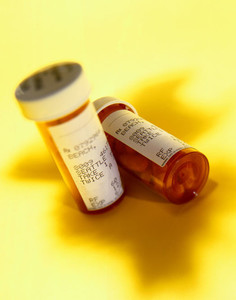A report in Clinical Pharmacology and Therapeutics provides further evidence that patients with epilepsy do not have a higher risk of seizures if they switch from their brand-name anti-epileptic drugs (AEDs) to the generic version [1].
This case-crossover study using Canadian healthcare databases studied AED users who visited the emergency room or were hospitalised due to seizures between 1997 and 2005. The team of Gagne, Avorn, Shrank and Schneeweiss had noticed a gap in the literature where no one had previously studied whether there was an elevated risk of seizure linked to refilling prescriptions with the same AED from the same manufacturer.
Prescription switching: a subset of prescription refilling
Gagne et al. reasoned that, as prescription switching can be considered as a subset of prescription refilling, albeit with an additional factor of variability introduced by the different manufacturers involved, then the possible risks associated with refilling the same drug from the same manufacturer should be investigated.
Results of the study: refilling prescriptions lead to an increase in seizure risk
From the database they identified 1,762 patients eligible for the study. Patients had a mean age of 35 + 23.8 years, were 53% female and had a seizure-related event requiring emergency treatment between 1997 and 2005. They found that, once the dose and form of dosage was held constant, refilling the prescription for the same AED from the same manufacturer was associated with a 2.1- to 2.3-fold increase in the chance of emergency treatment for seizures. The refill-adjusted effect of switching between products from different manufacturers was small, with a 4–19% increase in the odds of seizure-related outcomes.
Possible explanations for these results
The exact explanation for why prescription refilling, and not only prescription switching, may lead to an increase in the risk of seizures is not yet known, but the study’s authors propose some possibilities. Firstly, a lapse in the continuity of pharmacotherapy is known to lead to breakthrough seizures; it is possible that a certain lapse occurred immediately before refilling the prescription.
Several time-sensitive steps are involved in prescription refilling (and switching): often the process begins with a physical visit, or a telephone call to the prescribing physician or dispensing pharmacy, the medication must be prepared and collected and the new prescription must be started at the correct time on the right day; any delay in these chain of events can result in a brief lapse in pharmacotherapy adherence. Confusion may also result from the different label on the prescription and differing peripheral features of the drug itself, if made by different manufacturers.
The results from this study are also consistent with previous reports hypothesising that the risk of breakthrough seizures is increased whenever there is a variability in the bioavailability of the AED. A review from 2009 of more than 2,000 clinical bioequivalence studies of oral generic drugs approved by FDA showed that the average differences of peak drug concentration and area under the curve between generics and innovators were 4.4% and 3.6%, respectively [2]. Variability in the manufacturing process can also be expected to lead to similar fluctuations in bioavailability between lots from the same manufacturer.
Conclusion
Anecdotal evidence, case reports and editorials warning against the switching of brand-name AEDs may have their origin in the fluctuations of bioavailability due to the differences in manufacturing processes between one manufacturer and another. However, it had not been previously studied if similar fluctuations caused by variability in different lots produced from the same manufacturer also caused a higher risk of breakthrough seizures. All previous studies should be evaluated by adjusting for the effect of prescription refilling and not just prescription switching.
Editor’s comment
This present study by the team of Gagne et al. has provided an insight into this phenomenon, which should be studied in further detail as the ramifications of these results could impact patients with epilepsy in countries all over the world.
What are your thoughts on these results? Does the fact that refilling alone, and not only switching prescriptions, increases the risk of seizures come as a surprise? Are you aware of any other evidence, either empirical or anecdotal, that supports or contradicts this conclusion?
Please feel free to let us know your own personal experiences and share your thoughts via email to editorial@gabionline.net or in the comments section below.
Related articles
Does switching to generic anti-epileptic drugs lead to loss of seizure control
Epilepsy: medical concerns of prescribing generics
References
- Gagne JJ, Avorn J, Shrank WH, Schneeweiss S. Refilling and switching of antiepileptic drugs and seizure-related events. Clin Pharmacol Ther. 2010 Sep;88(3):347-53.
- Davit BM, Nwakama PE, Buehler GJ, Conner DP, Haidar SH, Patel DT, et al. Comparing generic and innovator drugs: a review of 12 years of bioequivalence data from the United States Food and Drug Administration. Ann Pharmacother. 2009 Oct;43(10):1583-97.








 0
0











Post your comment